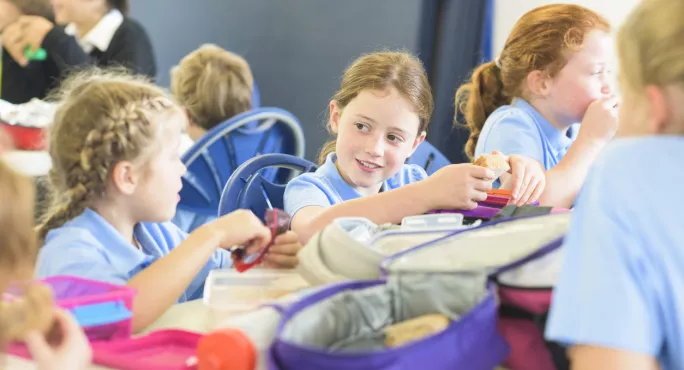- Home
- Coronavirus: 1000s of pupils to get food vouchers
Coronavirus: 1000s of pupils to get food vouchers

Thousands of disadvantaged pupils whose schools have closed due to coronavirus will receive supermarket vouchers.
The Co-op Academies Trust, which runs 25 schools, has said it will give a £20 voucher to each of its 6,500 pupils on free school meals to cover one week of unplanned closures.
The trust already has two schools closing tomorrow as pupils and staff self isolate in response to the crisis.
Dozens of headteachers at other schools are reportedly preparing to spend free school meal funding on supermarket vouchers in readiness for closures.
Coronavirus and schools: LIVE
News: Schools want to issue coronavirus closure food vouchers
Coronavirus: Heads say Ofsted visits could be halted
The chief executive of Co-op Retail has today called on the government to ensure no child goes hungry as a result of their school closing because of the coronavirus.
Jo Whitfield said: “For many children who receive free school meals, lunch at school is the main meal of the day so if school closes unexpectedly they could go hungry.
“We don’t think that’s fair on our students or their families who often struggle to keep food on the table, and it has an impact on the health and wellbeing of vulnerable families.”
Other school leaders taking action include Vic Goddard, the headteacher of Passmores Academy in Harlow.
Mr Goddard has already spent £15,000 buying supermarket vouchers so children on free school meals can be fed, despite not seeking approval for this from outside the school.
He said today: “We shouldn’t underestimate that for lots of families around the country the food that their child gets at school is the most significant meal they will get during their day.”
The head, who featured on the TV series Educating Essex, previously told Tes he has asked for guidance from local and national government about whether free school meals funding could be used in this way.
Speaking on BBC Radio 4‘s Today programme this morning, he said: “I think there are times when you should seek forgiveness, not permission and I have dozens of headteachers emailing saying we are doing it too, so if I get in trouble later I will worry about that when it happens.”
Charities and headteachers have also called on the government to ensure children eligible for free school meals will continue to receive food if schools close as a result of the coronavirus outbreak.
Stuart Lock, the chief executive of Advantage Schools, a multi-academy trust in Bedford, posted a discussion from his executive team about the options for pupils receiving free school meals in the group’s schools if they close.
The message said that one of the large supermarket retailers needs to “make it easy to bulk buy £2.50 or even £12.50 vouchers that we can post or email. I can’t see a way to buy such vouchers from any of the major retailers with stores in Bedford (Morrisons and Tesco).”
He added: “On reflection, a meal deal voucher isn’t the best bet here (fresh sandwiches likely to run out). Being able to make a contribution of £2.50 towards food shopping is more important.”
And 18 groups have written to the chancellor of the exchequer, Rishi Sunak, work and pensions secretary Therese Coffey, education secretary Gavin Williamson and housing secretary Robert Jenrick calling for clarification over how children eligible for free school meals will be fed if schools close.
Around 1.5 million children are eligible for FSM, and charities have said the simplest option would be for the government to make direct cash transfers available for low-income families, which are “by far the most effective tool in order to aid families to weather the storm” and preferable over vouchers for food aid or funding for lunch clubs.
Current government advice is that schools in the UK should not close but the situation could change as the disease continues to spread.
A Department for Education spokeswoman said: “Advice from Public Health England continues to be for schools to remain open, unless advised otherwise.
“We are continually reviewing how best to support all educational settings and young people, and the impact of any measures will be considered carefully before being implemented.”
Keep reading for just £1 per month
You've reached your limit of free articles this month. Subscribe for £1 per month for three months and get:
- Unlimited access to all Tes magazine content
- Exclusive subscriber-only stories
- Award-winning email newsletters



